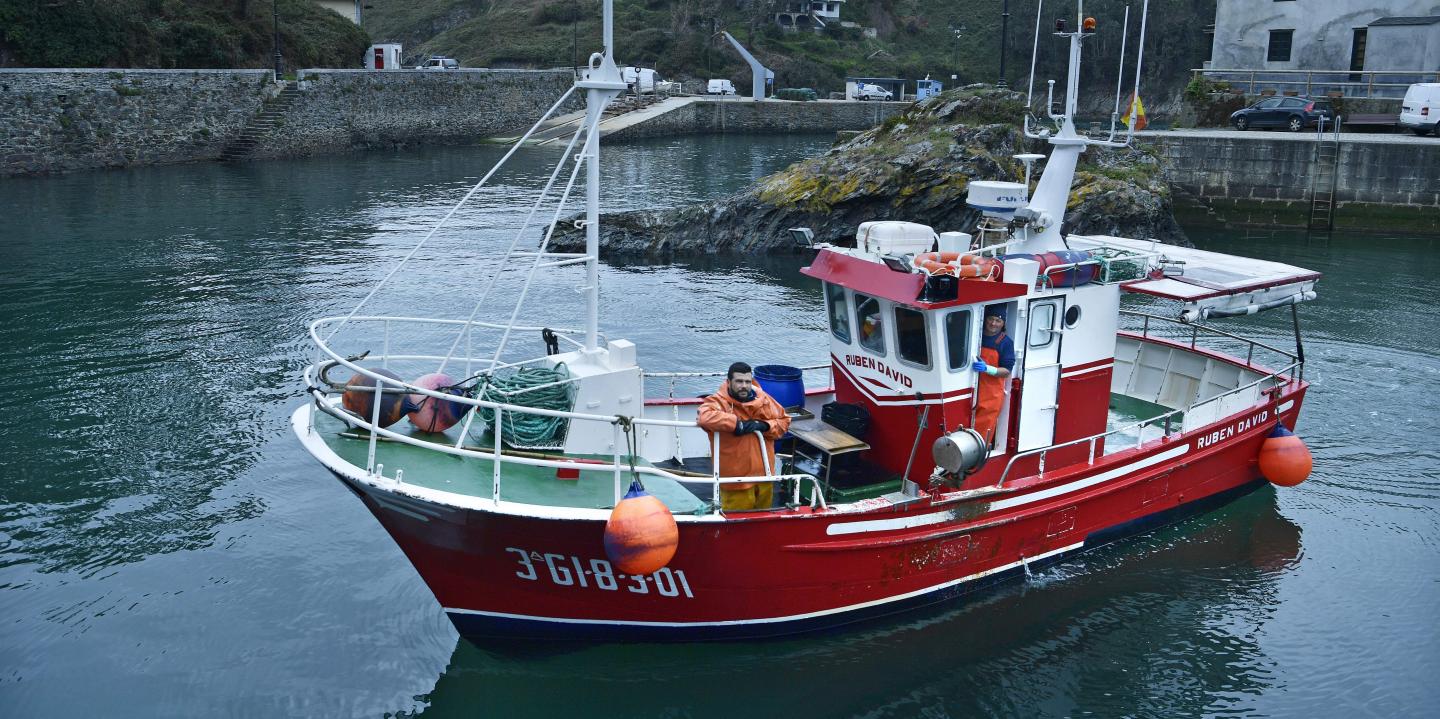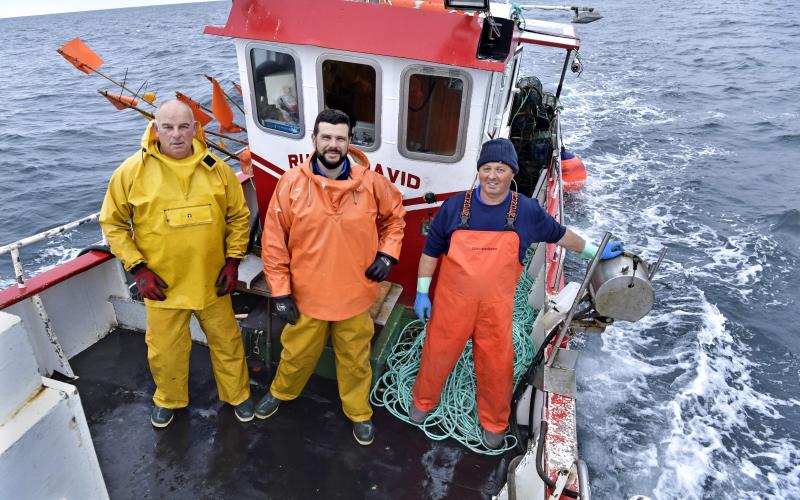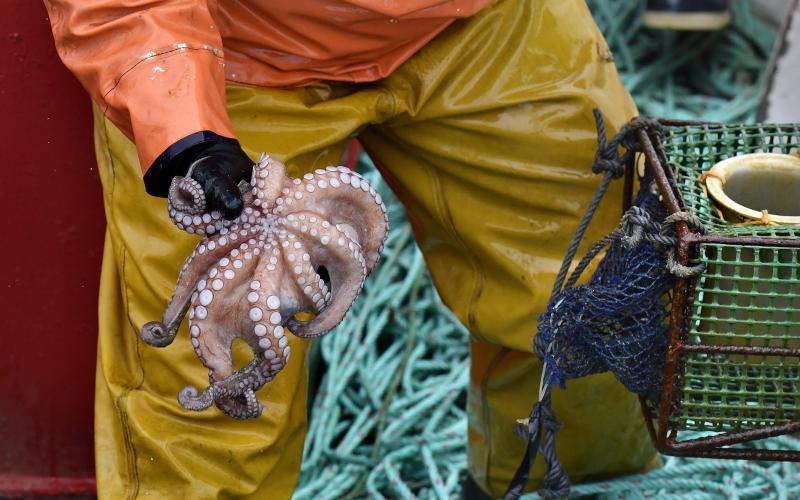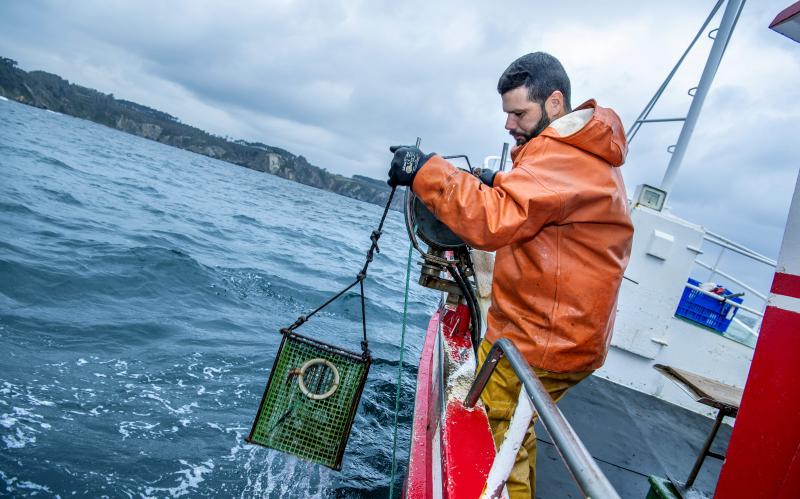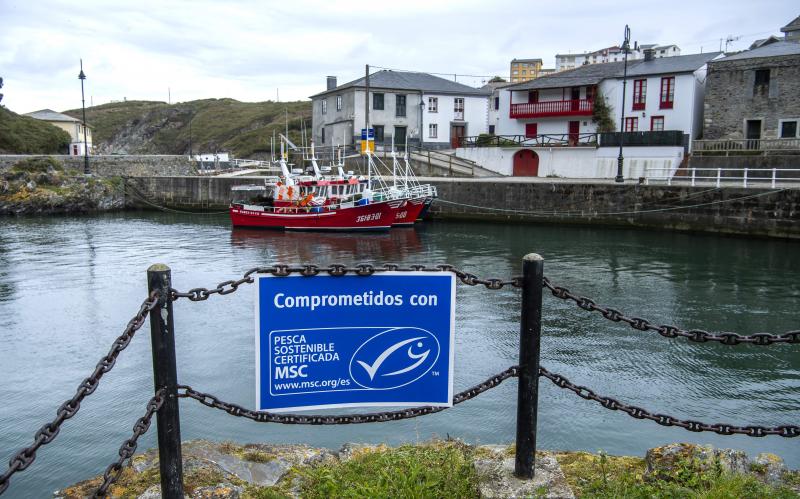MSC Pulpo – fishing with brain
Actually everyone knows that we humans should not pull everything out of the sea that we can snatch. But too few still follow that. For Coop, Bell now receives octopus from MSC-certified catches.
Fisherman David Manuel García uses the winch to pull cage after cage out of the water. He pulls an octopus out of about every second one. He throws the small squids back into the water. They are still too young, he does not want to and must not catch them. But he keeps the big ones, those weighing more than one kilo. He hands the empty cage to Alfredo Alvarez, who stacks it on the stern. The fishing boat with the name Ruben David is located off the coast of Asturias in the northwest of Spain, near the small village Viavélez. The April weather is cool. It is time to catch a delicacy of the region: octopus or pulpo, as it is also called in the kitchen.
David, his father José Manuel and Alfredo operate one of currently twenty-seven fishing boats that catch octopus following the MSC standard in Asturias. When father José Manuel tells the story, you can feel his pride in carrying the MSC label. “You have to fish smart”, he explains. With “smart” he means that the fishermen don’t just pull out everything the sea has to offer. The MSC fishermen comply with the catch limits, do not lay out more than the permitted 350 traps, use traps that comply with MSC regulations and control each other. “The control is the hardest part of the MSC certification”, explains son David with a smile: “The older fishermen are very reluctant to look at the books and they hate to carry a tracking device with them, which can be used to check exactly where they are fishing. But they have to get used to it.”
In the meanwhile José Manuel, David and Alfredo have reached the last traps. Today’s catch is rather modest by their standards. “About 90 kilograms”, David estimates. But because it is MSC pulpo, they get about 20 per cent more money for it than for conventional octopus. “We have stricter regulations and still catch about the same amount as before”, explains father José Manuel, who has been at sea for 43 years. “But in the end, we earn better thanks to MSC.” The voice spread. “Even with all the reservations against the controls, more and more fishermen are getting certified”, says David. In the medium term, they will also be able to supply more MSC octopus. From January to June the MSC fishermen from Asturias catch around 50 tons each. “This is actually negligible in terms of quantity”, says Concha Lopez, export manager of the fish processing Alfrio in northern Spain, who processes these 50 tons. Alfrio produces 1,400 tons of pulpo per year. “But when we talk about the quality and philosophy behind it, MSC is a very important step.”
Theodor Pulver, who supplies the MSC pulpo for Coop and Bell, shares this view. He is Head of Seafood Purchasing at Bell and a little proud that Coop is the only supplier in Switzerland that offers MSC pulpo in its range. “The Swiss are not the big octopus lovers”, says Pulver, “but they are catching up.” Above all, however, it is the southerners living in Switzerland who love this cuttlefish. And, very important: “They are also increasingly relying on sustainability labels such as MSC.” In culinary terms, the pulpo is an absolute delicacy and is sold dearly in Galicia and Asturias. One kilogram costs between 45 and 50 euros in the supermarket in Spain, which is more than what you pay for premium beef. The MSC pulpo is gutted and washed and then packaged and frozen as a whole squid. Freezing serves to facilitate transport, but not only: the freezing process and subsequent thawing breaks up the structure of the meat so that it becomes a tender delicacy in the first place.
